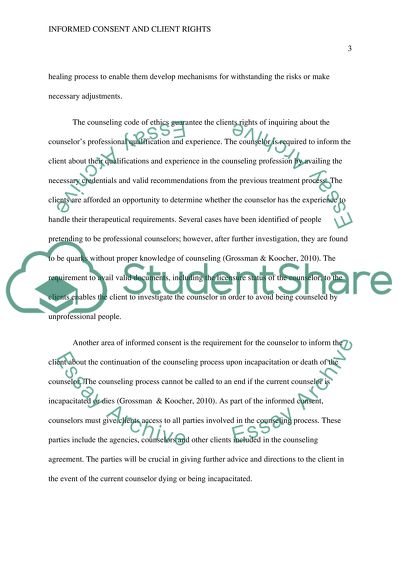Informed Consent and Client Rights Research Paper. Retrieved from https://studentshare.org/psychology/1489188-informed-consent-and-client-rights
Informed Consent and Client Rights Research Paper. https://studentshare.org/psychology/1489188-informed-consent-and-client-rights.


